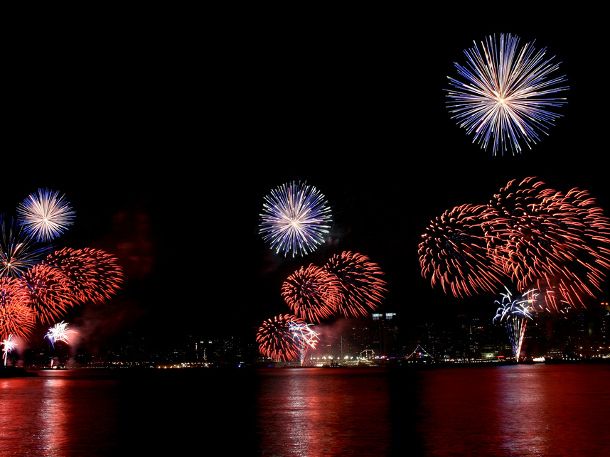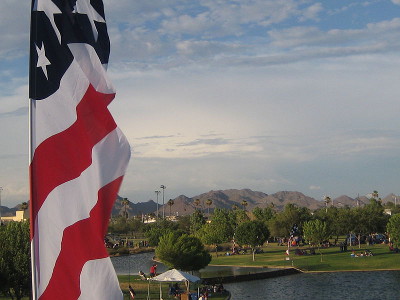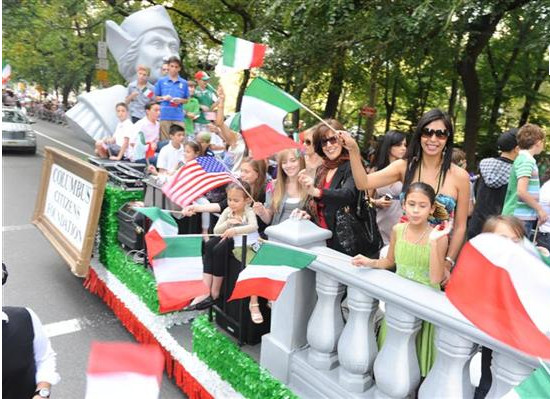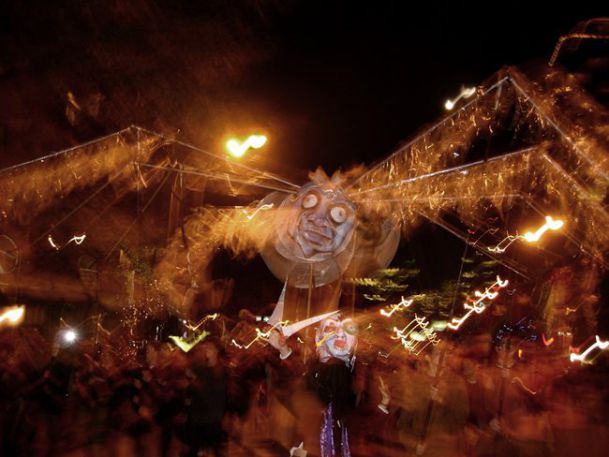
What’s more fun than working in NYC? Not working in NYC, of course. Especially nice are those days off work when you get to relax, perhaps get away, and get out of the office without any need for an excuse. But which days exactly will you be able to take off? In the US, certain days are declared as federal holidays, and federal employees get them off. Other holidays are widely celebrated but not actually mandatory, while others still are specific to faith groups, or simply a convenient mark on the calendar. New York International is here to help you get your head around them all, with our guide to holidays in the US.It’s worth mentioning that Europeans may be surprised at how few holidays you get in the US. Contractually granted sick leave and annual vacation is much rarer here than some countries, and with most US holidays falling on a Monday, three day weekends are a popular time to get away and escape the office (and the city). A lot of the decisions about whether you work or not will be up to your company – there are no true national holidays in the US, and each state has the right to recognize or observe holidays as it chooses, as do businesses. Stores’ opening hours often change on big holidays, either closing early (Christmas Eve, Thanksgiving) or remaining closed the entire day. However, in the US many stores do remain open on holidays – a surprise to many internationals. Christmas, Easter, and even Independence Day are increasingly normal working days for retail and the restaurant industry.
Federal Holidays
A federal holiday is one which is recognized by the US government. As such, all non-essential government offices close, with employees given paid time off. Most office-based businesses follow suit, and these are the most widely celebrated holidays in the country. At the moment there are eleven federal holidays, observed across the US – but again, it depends on your state and the holiday whether you’re likely to celebrate it.January 1 – New Year’s DayAn obvious one to start with. New Year’s Day is the first day of the Gregorian calendar, and most people will have it off work. It’s often used as a day of recovery from the previous nights’ parties, and as a day to take advantage of the sales held by a lot of stores.Third Monday in January – Martin Luther King Jr. Day.Martin Luther King Jr., a Baptist pastor who became the leader of the civil rights movement in the US, is an iconic figure, and the time around his birthday (actually January 15) was proclaimed a national holiday. Also known as Civil Rights Day by some.January 20 (Every four years) – Inauguration DayThe day that the incoming President is sworn in is known as Inauguration Day, but it’s not actually a holiday in NYC: instead, this one is only observed with regular time off work by federal employees in and around Washington D.C.Third Monday in February – Washington’s BirthdayOften called President’s Day in homage to other past leaders of the US, the third Monday in February remains legally and officially Washington’s Birthday. Still, no one’s really paying attention to the name, and for some, at least, it’s a day off work.Last Monday in May – Memorial DayA day to honor and remember those who have fought for their country, Memorial Day, or Decoration Day as it also gets called, is used to mark the beginning of summer in the US Memorial Day Parades and ceremonies around public buildings are common, as well as decorating the graves of past soldiers. July 4 – Independence DayOne of the biggest celebrations in the US, Independence Day – or simply the Fourth of July – remembers the adoption of the Declaration of Independence, severing the US’ ties with Great Britain. Firework displays, BBQs and parades celebrate the US’ continued liberties.First Monday in September – Labor DayThe traditional end of summer and start of the fall season. The holiday is in honor of workers and the labor movement. As the last day of summer it’s a popular day to head to the beach!
July 4 – Independence DayOne of the biggest celebrations in the US, Independence Day – or simply the Fourth of July – remembers the adoption of the Declaration of Independence, severing the US’ ties with Great Britain. Firework displays, BBQs and parades celebrate the US’ continued liberties.First Monday in September – Labor DayThe traditional end of summer and start of the fall season. The holiday is in honor of workers and the labor movement. As the last day of summer it’s a popular day to head to the beach!
Second Monday in October – Columbus Day
In 1492 Christopher Columbus arrived in the “New  World,” and Columbus Day honors this fact. It’s become a more controversial holiday in recent years, with some preferring to mark it as “Indigenous Peoples Day,” after the native inhabitants of North America who subsequently suffered from European colonization. New York has an annual Columbus Day ParadeNovember 11 – Veterans Day Marked as Armistice Day or Remembrance Day the world over, November 11 remembers the end of hostilities in WWI. In the US it’s used to remember all past and present veterans of the armed forces. Though the US tradition of holding federal holidays on Monday was applied to Veterans Day, the resulting conflict with international commemoration of the Armistice meant the holiday was moved back to the 11th of November every year.Fourth Thursday in November – ThanksgivingThe quintessential – and in many ways the most important – American holiday, Thanksgiving commemorates an early meal between pilgrims arrived from England and Native Americans, who shared food and shelter with the struggling community. Big family meals featuring roast turkey and plenty of trimmings and a general festive attitude mark this day, as well as a huge parade in NYC. Thanksgiving also leads on to …Day after Thanksgiving – Black FridayThe traditional start of the Christmas shopping season and the sales that accompany it, Black Friday isn’t an officially recognized holiday, but is nonetheless very real. Watch out for huge sales – often 90% off the price of certain goods – but the queues to go with them. Many offices remain closed for this unofficial holiday.December 25 – Christmas DayAlthough there’s a more recent trend to refer to this as “the holiday season” or “winter festival,” in an attempt to be more inclusive on non-Christians, Christmas Day is widely celebrated in much the same way as other parts of the world – Christmas trees, presents, carols, and a large meal, similar to Thanksgiving’s.
World,” and Columbus Day honors this fact. It’s become a more controversial holiday in recent years, with some preferring to mark it as “Indigenous Peoples Day,” after the native inhabitants of North America who subsequently suffered from European colonization. New York has an annual Columbus Day ParadeNovember 11 – Veterans Day Marked as Armistice Day or Remembrance Day the world over, November 11 remembers the end of hostilities in WWI. In the US it’s used to remember all past and present veterans of the armed forces. Though the US tradition of holding federal holidays on Monday was applied to Veterans Day, the resulting conflict with international commemoration of the Armistice meant the holiday was moved back to the 11th of November every year.Fourth Thursday in November – ThanksgivingThe quintessential – and in many ways the most important – American holiday, Thanksgiving commemorates an early meal between pilgrims arrived from England and Native Americans, who shared food and shelter with the struggling community. Big family meals featuring roast turkey and plenty of trimmings and a general festive attitude mark this day, as well as a huge parade in NYC. Thanksgiving also leads on to …Day after Thanksgiving – Black FridayThe traditional start of the Christmas shopping season and the sales that accompany it, Black Friday isn’t an officially recognized holiday, but is nonetheless very real. Watch out for huge sales – often 90% off the price of certain goods – but the queues to go with them. Many offices remain closed for this unofficial holiday.December 25 – Christmas DayAlthough there’s a more recent trend to refer to this as “the holiday season” or “winter festival,” in an attempt to be more inclusive on non-Christians, Christmas Day is widely celebrated in much the same way as other parts of the world – Christmas trees, presents, carols, and a large meal, similar to Thanksgiving’s.
Cultural and Religious Holidays
Beyond the official federal holidays, there are plenty of days special to specific cultural or religious groups that have large followings in the US In New York City, it’s worth being aware of the following: February 14 – Valentine’s DayTime to get in touch with the romantic in you! Valentine’s Day celebrates love – specifically, couples. As the biggest night of the year for a romantic date out – and, some would argue, a big commercial celebration – restaurants will put on special menus, but book up early as well.March 17 – St. Patrick’s DayA worldwide celebration of Irish culture, St. Patrick’s Day – commonly known as St. Paddy’s – means wearing green, drinking beer, and, for New Yorkers, enjoying the St Patrick’s Day Parade – an annual celebration held since 1762! Most schools will encourage their students to wear green and white on St. Patrick’s Day.Jewish Holidays – Rosh Hashanah, Yom Kippur, Hanukkah, Pesach / PassoverNew York City has the largest Jewish population anywhere in the world outside of Israel, and so naturally the holy days of Judaism have a larger impact on NYC than many internationals are used to in their home cities. Our guide to Jewish culture in NYC is a great way to learn more about Jewish history here, as well as the particular days when schools, shops, and Jewish-owned businesses may be closed. Be prepared for your Jewish colleagues to take these days off.Various Dates – Easter SundayEaster Sunday, celebrating the resurrection of Jesus Christ, is a Christian holiday that falls on a Sunday between March 22 and April 25, depending on the year. As a Christian festival that developed from an older Jewish holiday, the date changes following the lunar cycle. Easter has had a large impact on US culture, and modern day chocolate eggs, egg painting, children’s parties and various other festivities take place. In contrast, the Friday beforehand – Good Friday – and the following Easter Monday are considered regular work days in the US, unlike in many European countries where those days are also holidays.May 5 – Cinco de MayoA celebration of Mexican and Mexican-American culture, Cinco De Mayo is far more popular in the US than Mexico itself. Street parties, great Mexican food, and, of course, parades are all worth watching out for.Second Sunday in May – Mother’s DayMother’s Day honors mothers and motherhood in general. Since it’s a Sunday, office closures don’t really apply, although there are no particular customs either way. Mothers and grandmothers receive cards and presents from their children, and may go out for a special “thank you” meal.Third Sunday in June – Father’s DayAs with the above, but for fathers!September 11 – Patriot Day Commemorating the 2001 attacks on the World Trade Center and other US targets, Patriot Day – or simply 9/11 – is especially poignant in NYC. In the past it’s been common for the incumbent President along with family and friends of victims to gather at Ground Zero. Traffic may be affected, and security is always heightened.October 31 – Halloween
February 14 – Valentine’s DayTime to get in touch with the romantic in you! Valentine’s Day celebrates love – specifically, couples. As the biggest night of the year for a romantic date out – and, some would argue, a big commercial celebration – restaurants will put on special menus, but book up early as well.March 17 – St. Patrick’s DayA worldwide celebration of Irish culture, St. Patrick’s Day – commonly known as St. Paddy’s – means wearing green, drinking beer, and, for New Yorkers, enjoying the St Patrick’s Day Parade – an annual celebration held since 1762! Most schools will encourage their students to wear green and white on St. Patrick’s Day.Jewish Holidays – Rosh Hashanah, Yom Kippur, Hanukkah, Pesach / PassoverNew York City has the largest Jewish population anywhere in the world outside of Israel, and so naturally the holy days of Judaism have a larger impact on NYC than many internationals are used to in their home cities. Our guide to Jewish culture in NYC is a great way to learn more about Jewish history here, as well as the particular days when schools, shops, and Jewish-owned businesses may be closed. Be prepared for your Jewish colleagues to take these days off.Various Dates – Easter SundayEaster Sunday, celebrating the resurrection of Jesus Christ, is a Christian holiday that falls on a Sunday between March 22 and April 25, depending on the year. As a Christian festival that developed from an older Jewish holiday, the date changes following the lunar cycle. Easter has had a large impact on US culture, and modern day chocolate eggs, egg painting, children’s parties and various other festivities take place. In contrast, the Friday beforehand – Good Friday – and the following Easter Monday are considered regular work days in the US, unlike in many European countries where those days are also holidays.May 5 – Cinco de MayoA celebration of Mexican and Mexican-American culture, Cinco De Mayo is far more popular in the US than Mexico itself. Street parties, great Mexican food, and, of course, parades are all worth watching out for.Second Sunday in May – Mother’s DayMother’s Day honors mothers and motherhood in general. Since it’s a Sunday, office closures don’t really apply, although there are no particular customs either way. Mothers and grandmothers receive cards and presents from their children, and may go out for a special “thank you” meal.Third Sunday in June – Father’s DayAs with the above, but for fathers!September 11 – Patriot Day Commemorating the 2001 attacks on the World Trade Center and other US targets, Patriot Day – or simply 9/11 – is especially poignant in NYC. In the past it’s been common for the incumbent President along with family and friends of victims to gather at Ground Zero. Traffic may be affected, and security is always heightened.October 31 – Halloween You can see our US Fall Traditions article for the full explanation of this spooky festival, but basically, Halloween is a celebration that comes from a now pretty defunct celebration of the seasons. In NYC it means trick-or-treating (kids asking for candy) and a big Halloween Parade in the Village.December 26 – January 1 – KwanzaaAn African-American holiday that celebrates black culture, celebrated since the 1960s. Although not widely celebrated outside of the African-American community, the holiday has gained wide recognition.
You can see our US Fall Traditions article for the full explanation of this spooky festival, but basically, Halloween is a celebration that comes from a now pretty defunct celebration of the seasons. In NYC it means trick-or-treating (kids asking for candy) and a big Halloween Parade in the Village.December 26 – January 1 – KwanzaaAn African-American holiday that celebrates black culture, celebrated since the 1960s. Although not widely celebrated outside of the African-American community, the holiday has gained wide recognition.

